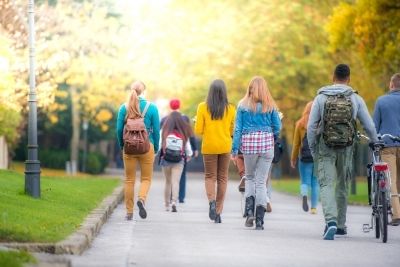
Each post-secondary school will have a range of services to support students with disabilities and the wider student population. These services provide an excellent source of support for students. Students are highly encouraged to take advantage of these often underused resources. A description of services that may be provided at post-secondary institutions is given below.
Accessibility Support Services
In addition to accommodations, many colleges and universities offer support services that cater directly to students with disabilities. These may include:
- Summer Transition or Orientation Programs: Some schools offer workshops for students with disabilities to help them prepare for life at post-secondary school; these programs range from one-day events to week-long transition camps.
- Appointments with a Learning Strategist: Many schools employ Learning Strategists to help students with disabilities develop strategies to improve their learning and study skills.
- Peer Mentoring: Some schools offer peer mentorships with upper-year students who also have disabilities; mentors provide advice and information about navigating post-secondary life.
- Tutoring Services and Academic Support: Some schools may offer academic support that is available specifically to students with disabilities.
- Support or Social Groups: Some post-secondary schools have support or social groups for students with disabilities to connect with others who have similar challenges/experiences.
All Other Support Services
Colleges and universities offer a wealth of support services to meet the diverse needs of all of their students. These services often include:
- Student Health Centre: The health centre may be drop-in or by appointment only, may be able to offer all of the same services one would receive from a family doctor, or may offer more limited services (with referrals available to community practitioners).
- Counselling Centre: Support and counselling for students that need help regarding anxiety or mood problems, relationships, depression, substance abuse, or other personal problems/crises.
- Peer Tutoring, Writing/Academic Centres: Academic support for specific content areas, tasks (such as writing or math), and/or work habits (studying, writing tests, time management, organization, etc.).
- Library and Reference Workshops: Resources and workshops on how to find and access materials in the library for research or other projects, as well as how to properly cite and reference materials.
- Academic Advising: Academic advisors can help students choose their academic courses, navigate their program requirements, change programs, plan for reduced course loads or medical leaves, and make educational plans for students who have failed courses or are on academic
 probation.
probation. - Additional services that schools may offer include: Indigenous Centre, First-Generation Centre (for students whose parents did not attend post-secondary), International Student Centre, Career Services, Childcare Centre, sexual violence/harassment resources, resources for food insecure students, Human Rights Office, and resources for BIPOC (Black, Indigenous, and Persons of Colour) and 2SLGBTQ+ students.

